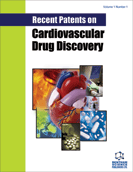Abstract
Basic and clinical investigation into many of the diverse aspects of cardiovascular drug discovery employs varied approaches aimed at determining physiologic and pathophysiologic efficacy of candidate agents for therapeutic utility with the ultimate hope of identifying those agents capable of exerting salutary influence upon cardiac and vascular tissues. Promising compounds may then be used for prophylactic cardiovascular protection and for the treatment of various disorders including hypertension, cardiomyopathy, occlusive vascular disease, and heart failure. The invention disclosed in Methods for identifying cardiovascular agents [1] provides screening methods which can be used to identify certain suspected cardiovascular agents that inhibit vascular smooth muscle cell (VSMC) activation and/or proliferation, functional adaptations inherent in the responses to disease or injury, or those that enhance vascular endothelial cell (VEC) activation and/or proliferation, processes thought to provide protection to jeopardized blood vessels. Additionally, these screening assays include agents that activate estrogen responsive genes in vascular cells, considering that estrogen signaling is generally suggested to serve pivotal functions in preventing many of the pathologic mechanisms contributing to occlusive vascular complications. The findings of this primary patent are directly relevant for discoveries in related inventions that disclose various provisions for cardiovascular drug discovery. This review will provide detailed synopses of these function-based screening methods capable of identifying cardiovascular protective agents for use in basic science research and clinical drug discovery.
Keywords: Cardiovascular agent, cell activation, cell culture, cell proliferation, estrogen, estrogen responsive element, gene expression, myocyte, nitric oxide synthase, receptor, reporter construct, vascular endothelial cell, vascular injury, vascular smooth muscle cell, vasoprotection
 14
14


